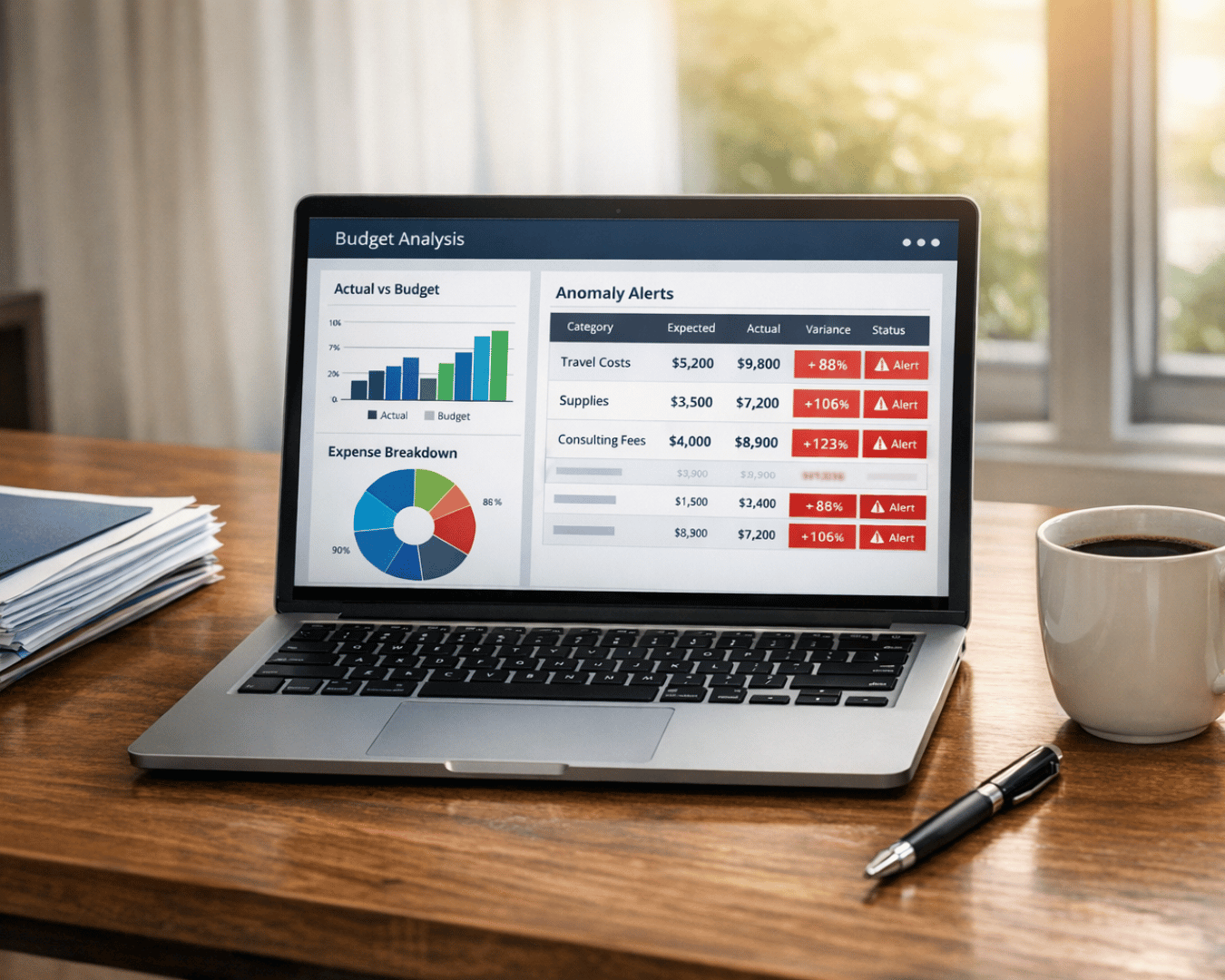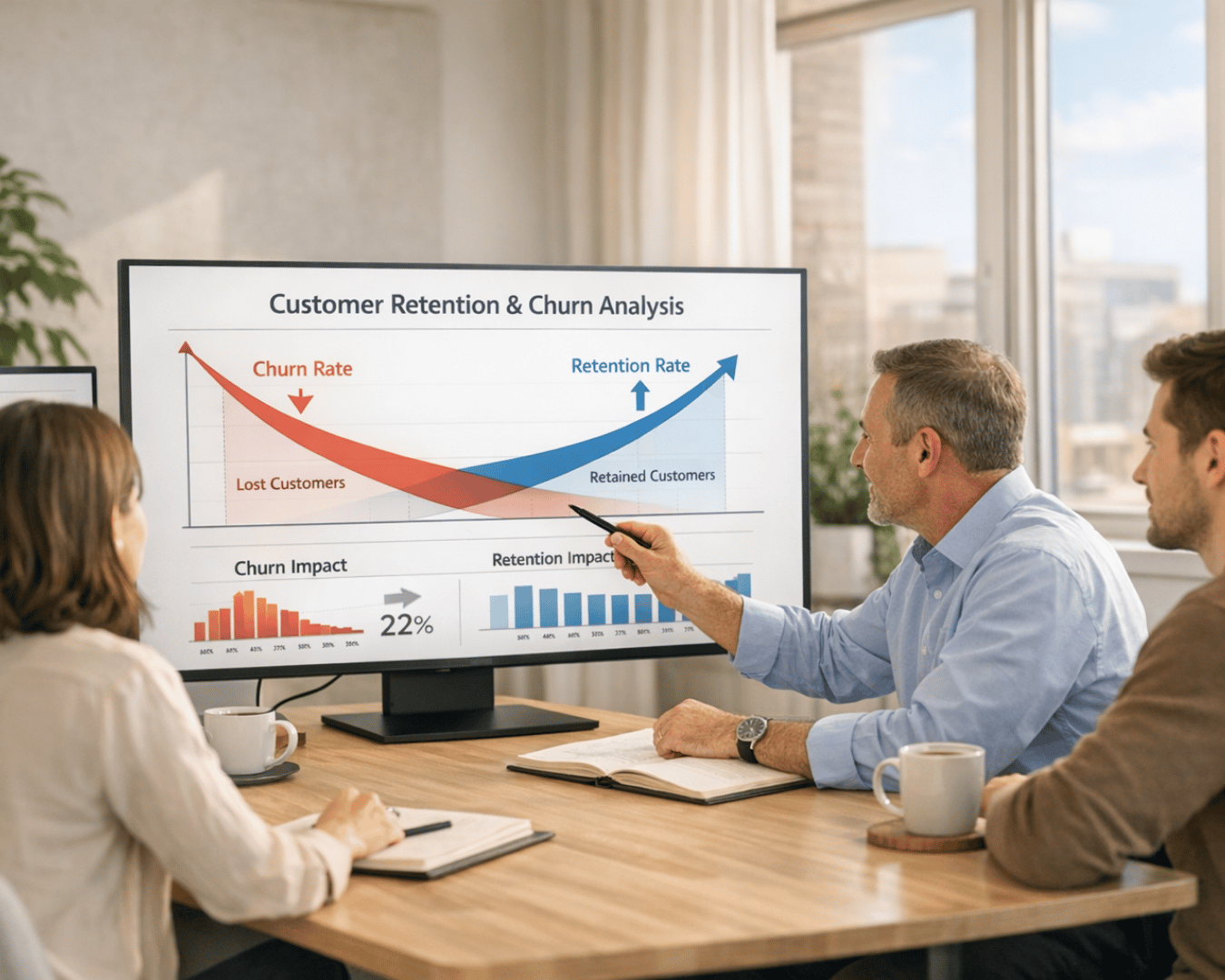Selling your business? Finding the right buyer is key to a smooth transaction. Here's how to qualify buyers effectively:
- Check Financial Capability: Ensure buyers have the funds or financing to cover the purchase price, closing costs, and working capital. Review tax returns, credit history, and proof of funds.
- Assess Intent: Serious buyers have clear goals, realistic timelines, and a strong commitment to the deal. Look for well-defined acquisition plans and active participation in the process.
- Evaluate Experience: Buyers with industry knowledge or transferable skills are better prepared to manage your business post-sale. Relevant experience reduces risks during the transition.
Using tools like Clearly Acquired can simplify screening by verifying buyers, automating workflows, and safeguarding sensitive information.
These steps save time, protect your business, and increase the likelihood of a successful sale.
How To Qualify Business Buyers – Selling Your Business 101
Main Buyer Qualification Factors
When evaluating potential buyers for your business, three critical factors stand out: financial capability, intent and motivation, and relevant experience. These elements provide a comprehensive view of buyer quality and help avoid potential pitfalls during the sales process.
Financial Capability
A buyer's financial strength isn't just about having cash on hand. It includes robust cash reserves, liquid assets, a solid credit history, and a manageable debt-to-equity ratio. These elements ensure they can cover the purchase price, closing costs, working capital, and any unforeseen expenses. Buyers with excessive debt may face challenges securing financing or managing cash flow post-acquisition.
Access to diverse financing options is another sign of a serious buyer. This could include SBA loans, traditional bank loans, seller financing, or equity partnerships. Proactively securing funding demonstrates their commitment to the transaction.
To confirm a buyer's financial stability, review key documents like tax returns, bank statements, and personal financial statements. A professional evaluation of these records can reveal hidden concerns. Once financial capability is established, the next step is to assess the buyer's intent and motivation.
Intent and Motivation
Understanding a buyer's strategic goals is vital. Serious buyers can clearly explain how acquiring your business aligns with their objectives - whether it's for expansion, diversification, or entering a new market.
As Maria Madrid from Exit Advisors explains:
"Understanding the buyer's perspective in acquisitions isn't just an effective strategy - it's the secret weapon and a competitive advantage for business owners, CPAs, and lawyers aiming for triumph in M&A."
Buyers with a clear vision for the future stand out. They should be able to articulate plans for improving the business, implementing growth strategies, and managing operational changes. Thorough research into your business, industry trends, and market conditions shows they are making an informed decision. Additionally, realistic timelines and well-defined next steps can provide confidence in their commitment to closing the deal. Alongside intent, a buyer's experience plays a vital role in ensuring a smooth transition.
Relevant Experience
While buyers don't need direct experience in your industry, they should possess transferable skills and strong business acumen to successfully manage your company. Industry familiarity can be especially helpful during due diligence and the operational transition, offering insight into regulatory requirements, supplier relationships, and customer needs.
Look for buyers with proven management and operational expertise. Relevant technical skills are also important; if they lack certain competencies, they should have a clear plan to acquire the necessary knowledge or hire skilled team members.
A strong professional network and industry relationships can be an added advantage, unlocking opportunities for partnerships and operational efficiencies.
Together, financial strength, clear intent, and relevant experience create the foundation of an ideal buyer profile. While no buyer may excel in every area, meeting minimum expectations in each category is essential for a smooth and successful acquisition.
How to Check Financial Readiness
To assess a buyer's financial readiness, start by reviewing their financial documentation to confirm the claims they’ve made. This step ensures transparency and helps you gauge their ability to follow through on the transaction.
Checking Credit History
A buyer's credit history sheds light on their financial reliability and capacity to secure financing. Request both personal and business credit reports from trusted agencies like Dun & Bradstreet, Equifax, and Experian. For business credit, scores typically range from 1 to 100, with anything above 75 being considered strong.
Another key metric to evaluate is the debt-to-income ratio (DTI), which is calculated by dividing monthly debt payments by gross income. Most lenders prefer a DTI ratio of 36% or lower, though some may allow up to 50%. Here’s how lenders generally interpret different DTI ranges:
| DTI Range | Lender Assessment |
|---|---|
| Less than 36% | Favorable; debt is manageable |
| 37% to 42% | Indicates manageable debt but may raise concerns |
| 43% to 50% | Suggests difficulty managing debt; limits options |
| 51% or higher | High risk; unlikely to secure new credit |
Additionally, review trade references from banks and suppliers. Pay special attention to patterns like late payments or defaults, as these may signal potential issues down the road.
Lastly, verify the buyer’s available cash and assets to confirm their financial stability.
Confirming Cash and Assets
Cash flow is critical - 82% of small business failures stem from cash flow issues. To confirm the buyer’s ability to pay, request a proof of funds (POF) document. This document, often a bank, security, or custody statement, verifies that the buyer’s funds are both accessible and legitimate.
"The purpose of the proof of funds document is to ensure that the funds needed to execute the transaction fully are accessible and legitimate."
Make sure the POF documents are up to date (no older than 90 days). If funds are distributed across multiple accounts, request details for each one. Keep in mind that only liquid assets count - retirement accounts, mutual funds, and life insurance policies generally do not qualify.
Beyond covering the down payment, the buyer should have enough reserves for working capital, closing costs, and unforeseen expenses. Review three to six months of bank statements to check for consistent cash flow and identify any unusual activity.
Reviewing Assets and Debts
A thorough review of assets and debts gives a complete picture of financial health. Request financial statements - income, balance sheet, and cash flow - for the last three years to assess stability.
Tax returns from the past three to five years are also essential. These documents reveal details like formation dates, business addresses, officer compensation, accounting methods, and a snapshot of assets and liabilities. Compare this information with bank statements to ensure accuracy and uncover any discrepancies between reported income and actual deposits.
Pay close attention to the cash flow statement, which shows how money moves in and out of the business. This document provides insight into daily operations and the company’s ability to sustain itself after the sale. Additionally, review accounts receivable and accounts payable to understand the debts owed to and by the business.
Sidharth Ramsinghaney, Director of Corporate Strategy and Operations at Twilio, highlights the importance of this process:
"The difference between successful and failed transactions often comes down to rigorous financial due diligence and meticulous preparation. Systematic pre-deal analysis and post-deal integration planning are the key determinants of deal success."
Finally, request a profit and loss statement no older than 180 days. This document provides a snapshot of recent financial performance, helping identify any significant changes that could impact the buyer’s ability to complete the transaction.
Together, these steps offer a clear picture of the buyer’s financial stability. While this assessment is crucial, it’s just one part of the puzzle. Gauging the buyer’s intent and commitment offers additional insights into the likelihood of a successful transaction.
sbb-itb-a3ef7c1
Measuring Buyer Intent and Commitment
Understanding a buyer's intent goes beyond just confirming their financial capability. It’s about gauging their readiness to follow through, which serious buyers demonstrate through clear communication and deliberate actions.
Learning Their Purchase Goals
Unpacking the reasons behind a buyer’s interest in your business can shed light on their level of commitment. As Adam Jacobs, Esq. points out:
"Regardless of the reason, a key question is what is the desired goal? The goal or goals will impact the advice provided by the professionals engaged to assist the buyer."
Buyers with a clear acquisition strategy are easier to assess compared to those with vague or overly general interests. For instance, private equity groups and financial buyers often prioritize businesses with stable, recurring revenue streams and predictable growth.
It’s important to ask potential buyers about their post-acquisition plans. What are their operational strategies? How do they intend to fund the purchase? What role do they envision for the current management team? If a buyer struggles to articulate these points or frequently shifts their strategy, it could signal a lack of genuine interest.
Once their goals are understood, pay close attention to how actively they engage throughout the buying process.
Checking Participation Levels
Active engagement is a hallmark of serious buyers. Roberta Caputo, a seasoned author and business expert, explains:
"Serious buyers typically communicate their intentions clearly and directly. They express interest in the product or service and ask pertinent questions about the business, its operations, financials, and future prospects."
A buyer’s level of participation can be measured by how promptly and thoroughly they communicate, adhere to deadlines, and follow through on commitments. These behaviors are strong indicators of genuine intent.
However, be cautious of red flags, such as rushed due diligence or a lack of resource allocation. These could point to a buyer who isn’t fully committed.
Planning the Handover
A buyer’s commitment becomes even clearer when they engage in detailed transition planning. This step not only reflects their dedication but also their understanding of how the business operates. Transparent communication during this phase fosters trust and sets the stage for a smoother transaction.
Pay attention to how buyers approach discussions about contracts, supplier relationships, and employee agreements. Buyers who neglect transition planning or focus only on short-term changes may lack the long-term vision needed for sustained success.
To support this process, provide buyers with clear, well-organized information during due diligence. Serious buyers will dedicate resources to verify critical details and examine the specific risks and opportunities tied to your business.
Using Tools and Technology for Buyer Qualification
Modern technology has transformed how potential buyers are qualified, making the process more efficient and secure. By utilizing the right tools, sellers can ensure that buyers meet essential standards like financial capability, genuine intent, and relevant experience. These tools not only streamline verification but also improve communication and help pinpoint serious prospects.
Using Buyer Verification Systems
Effective buyer qualification starts with robust verification systems. Platforms such as Clearly Acquired handle buyer identity checks, automate NDAs, and use secure data rooms to control access to sensitive information. This initial screening phase weeds out unqualified buyers and safeguards confidential data from the outset.
The verification process typically includes identity confirmation, financial capability assessments, and background checks. Buyers who pass these steps are granted access to more detailed information as they move further along in the qualification process.
Using Advanced Search and Deal Management
Once buyers are verified, advanced search tools help refine the matching process. AI-driven systems analyze buyer preferences, financial standing, and acquisition history to pair them with suitable opportunities. These tools go beyond simple keyword matching, offering insights into buyer intent and compatibility with specific business models.
CRM platforms play a crucial role in managing buyer interactions and tracking deal progress. These systems centralize communications, qualification updates, and engagement records, making it easy to identify which buyers are most active and likely to close a deal.
Deal management hubs provide sellers with dashboards to monitor multiple buyers at once. These tools track buyer activity, document requests, and communication patterns, helping sellers focus on the most promising prospects. Uday Nayar from Demandbase highlights the importance of these tools, stating:
"Buyers have so many platforms, tools, and avenues at their disposal now that essentially, more than 70% of their journey is complete even before they pick up the phone and talk to a salesperson".
Additionally, email and document management systems ensure secure communication and streamlined document sharing throughout the process. These tools automatically organize buyer inquiries, track document access, and maintain audit trails for compliance purposes.
Data integration further enhances the process by consolidating information for clear analysis and reporting. Sellers can use this unified approach to identify patterns in buyer behavior, address qualification bottlenecks, and refine their screening methods over time.
Getting Advisory and Funding Support
Advisory services offer valuable assistance to qualified buyers, helping them navigate the acquisition process while providing sellers with added confidence in their capabilities. These services often include business valuation, due diligence support, and guidance on structuring transactions.
Financing is another critical component of buyer qualification. Integrated platforms offer solutions like SBA loans, commercial financing, and alternative funding options to ensure buyers have confirmed financial backing.
For larger acquisitions or post-acquisition growth plans, equity injection services connect buyers with investors to secure additional capital. This is especially helpful when traditional debt financing isn't sufficient.
By combining advisory and funding support, sellers work with buyers who are not only pre-qualified but also financially prepared to complete the deal. This reduces the risk of deals falling apart due to funding issues.
The integration of these technological tools and services enhances every step of the buyer qualification process. Platforms like Clearly Acquired bring together advanced technology and expert guidance, streamlining the journey from initial screening to deal completion.
Summary
Proper buyer qualification is all about evaluating three key factors: financial capacity, intent, and relevant experience. This approach minimizes risks, ensures smooth transitions, and protects sellers from buyers who may lack the necessary resources or commitment to follow through. By focusing on these criteria, sellers can set the stage for secure and efficient transactions.
Start by confirming the buyer’s financial strength. Look for adequate liquid funds and a sufficient down payment. Sellers should request up-to-date financial statements or a lender prequalification letter before sharing any sensitive business information with potential buyers.
Next, assess the buyer’s intent. Serious buyers typically have clear investment criteria, realistic timelines, and well-defined acquisition goals. This step helps identify genuine prospects who are not only committed to completing the deal but also prepared to operate the business successfully over the long term.
Relevant industry experience is another critical factor, especially for businesses requiring specific licenses or certifications. Ensuring the buyer has the necessary expertise can make the transition smoother and reduce potential operational hiccups, particularly in regulated or specialized industries.
Modern tools and platforms like Clearly Acquired now play a significant role in streamlining the qualification process. These technologies offer advanced tools and advisory support, enabling sellers to focus on the most promising buyers while safeguarding sensitive business information.
FAQs
What financial documents should I request to verify a potential buyer's financial capability?
To assess a buyer's financial ability, request essential documents like their profit and loss statement, balance sheet, and cash flow statement. It's also important to review their recent tax returns, bank statements, and details on accounts receivable and payable. These records help paint a clear picture of their financial stability and readiness to move forward with the purchase.
For a deeper evaluation, examine their debt obligations and liquidity reports. This ensures they not only have the means to finalize the deal but can also effectively manage the business afterward.
How do I ensure a buyer's goals align with my business sale strategy?
When selling your business, it's crucial to ensure the buyer's goals match your own strategy. Start by evaluating their motivations, vision, and understanding of your business. Look for individuals or groups who prioritize the same things you do - whether that's growth, maintaining operational stability, or keeping the company culture intact.
Gauge their level of commitment by discussing their long-term plans and how those plans align with your strategic goals. A buyer who shows sincere interest and has a clear, forward-thinking vision is more likely to lead to a successful and rewarding sale for both parties.
Why is relevant experience important when qualifying business buyers, and how can I evaluate it effectively?
When evaluating business buyers, relevant experience is a crucial factor. It shows whether they have the skills to not only acquire but also successfully manage and grow the business they’re interested in. Sellers and brokers often lean toward buyers with industry expertise or a history of acquisitions, as this builds trust in their ability to close the deal and operate the business effectively.
To assess a buyer's experience, start by reviewing their professional background. Look through resumes, business histories, or LinkedIn profiles to pinpoint relevant skills and achievements. Conduct interviews to gauge their industry knowledge and past transaction experience. This thorough vetting process ensures the buyer is well-prepared to handle the complexities of the acquisition journey.



















%20%20Process%2C%20Valuation%20%26%20Legal%20Checklist.png)

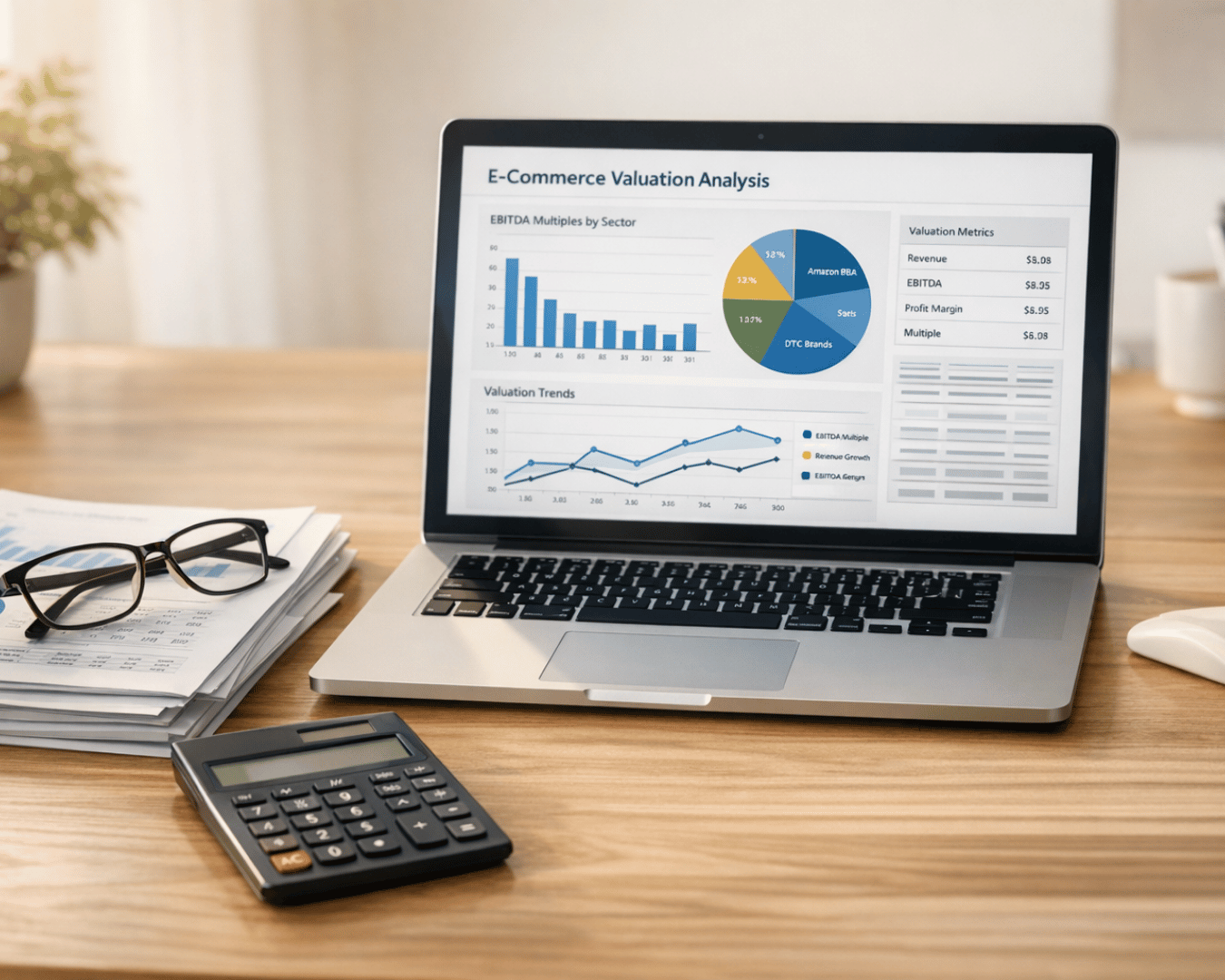

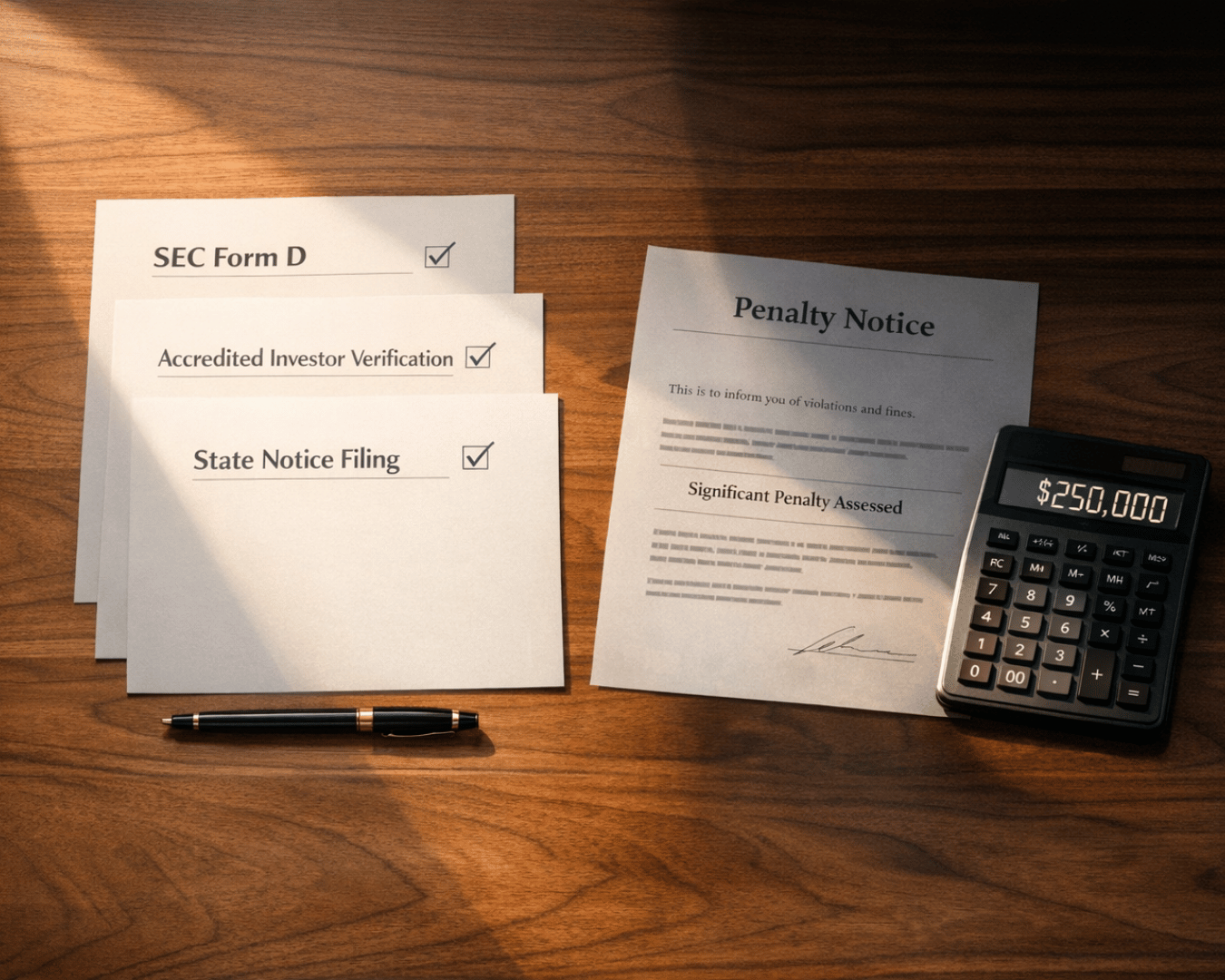







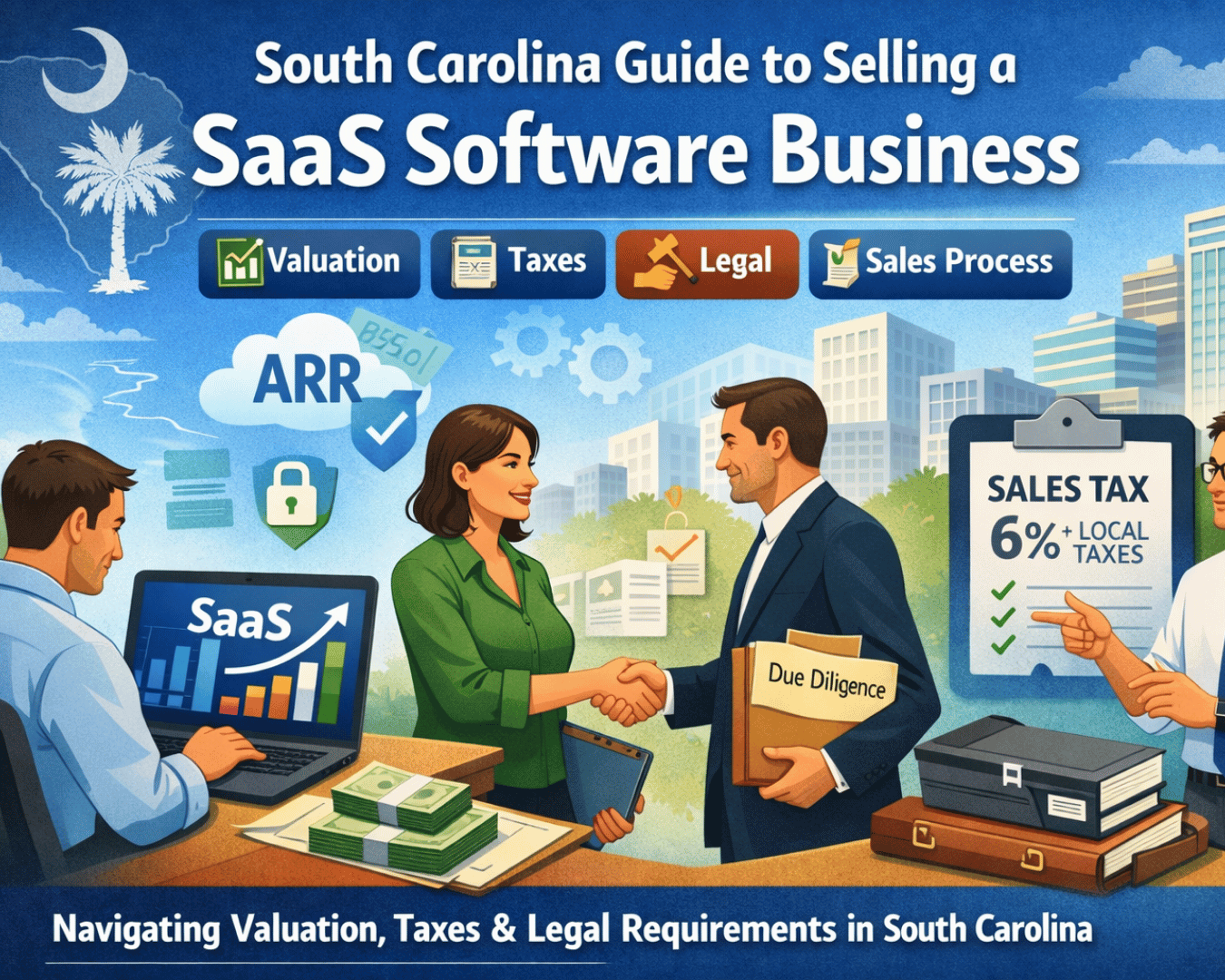







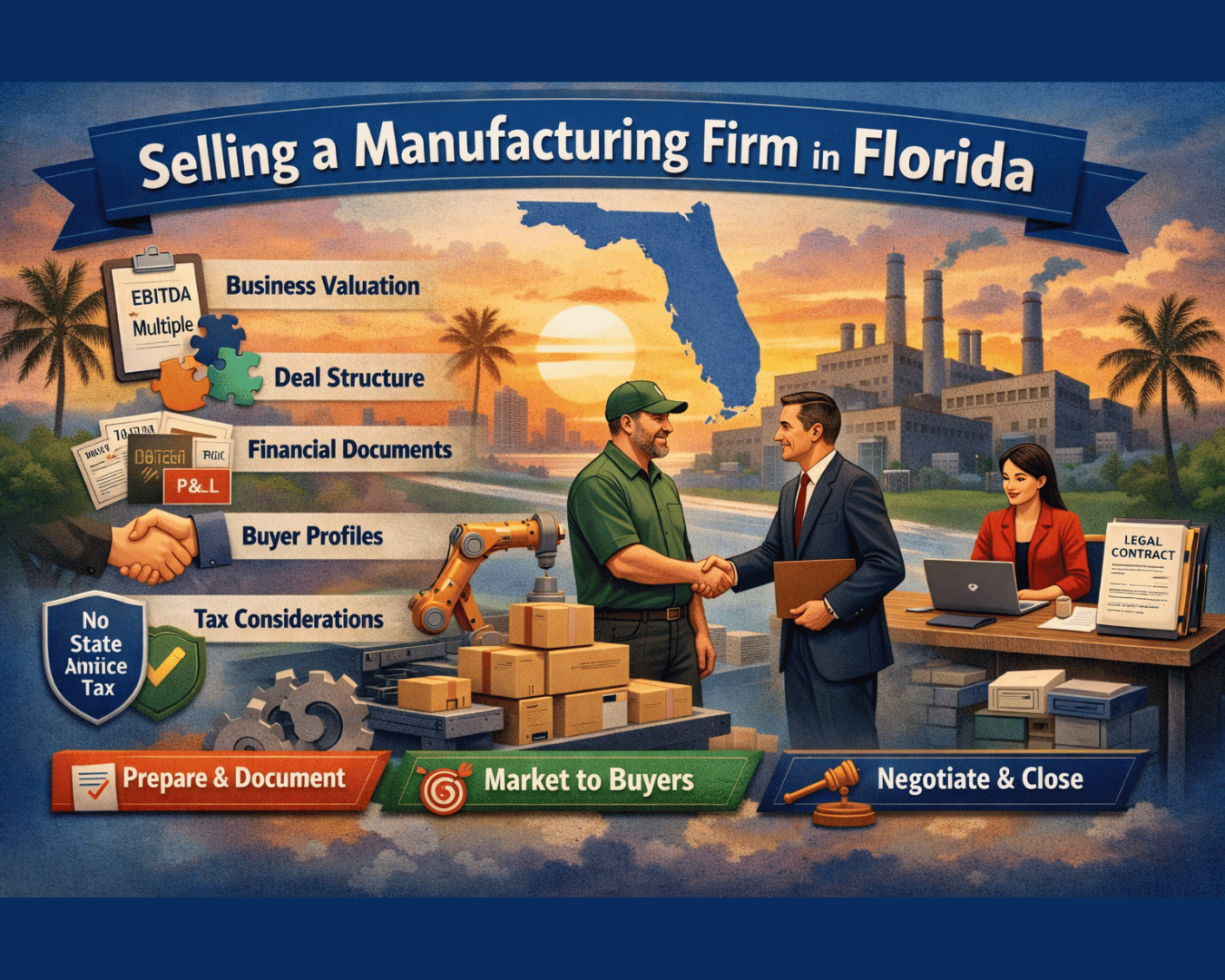
%20in%20a%20%2420M%20Sale..png)
%20vs.%20Conventional%20Loans%20for%20business%20acquisition.png)






















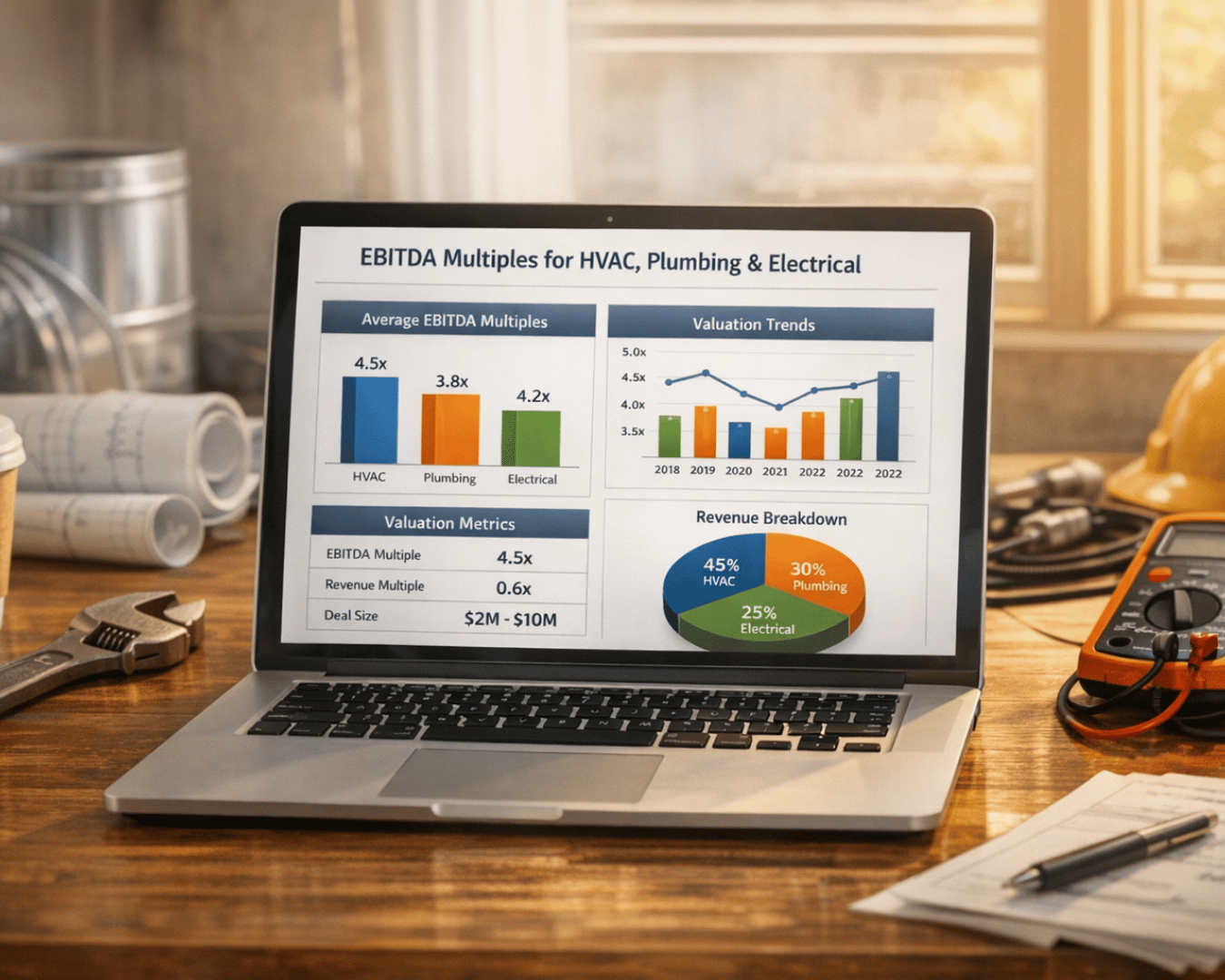
.png)


.png)
.png)

